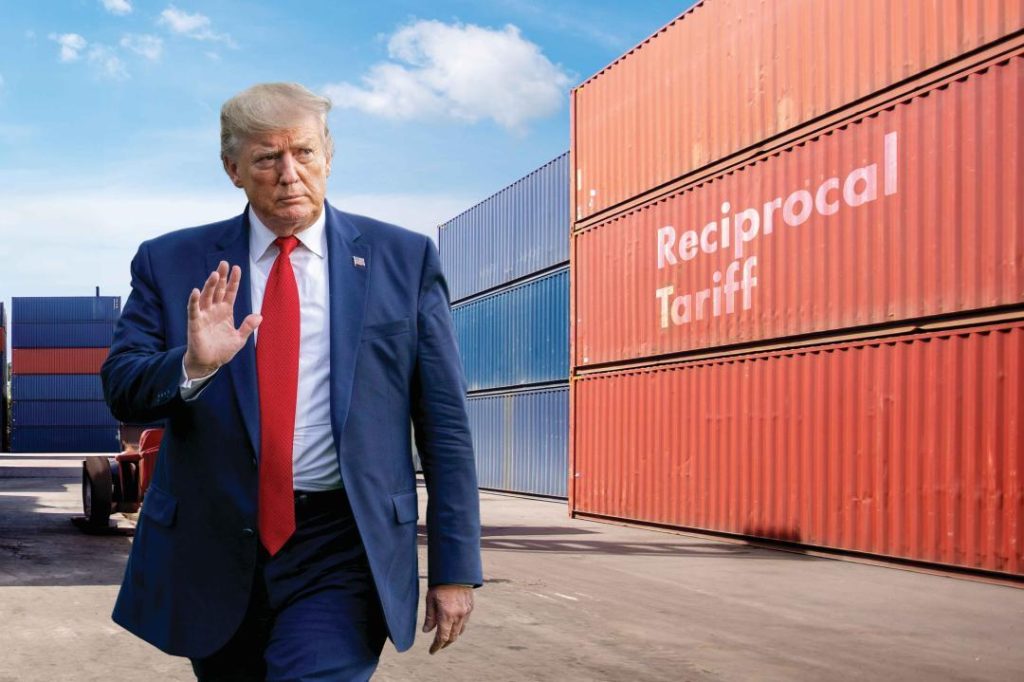
The Great Tariff War: Disruption, Diplomacy, & the Future of Trade
The global trade landscape has been plagued by uncertainty and volatility in recent years, particularly with the rise of tariffs and trade wars. The latest development in this ongoing saga is the announcement of new tariffs by the United States, aimed at China and other countries. Amidst this backdrop, India is emerging as an alternative to China, presenting a significant opportunity for the country to strengthen its position as a global manufacturing and logistics hub.
The Roots of the Tariff War
The tariff war, also known as the trade war, began in 2018 when the Trump administration imposed tariffs on steel and aluminum imports, citing national security concerns. This move was met with swift retaliation from China, which imposed tariffs on American goods worth over $50 billion. The situation escalated further, with the US imposing additional tariffs on Chinese goods, and China retaliating with tariffs on American agricultural and industrial products.
The Impact on Global Trade
The tariff war has had far-reaching consequences for global trade. Trade volumes have decreased, and supply chains have become increasingly complex and costly. The uncertainty surrounding tariffs has led to a decline in foreign direct investment, and many companies have been forced to re-evaluate their global supply chains.
India’s Emergence as an Alternative to China
In the midst of this chaos, India has emerged as an attractive alternative to China for global companies. The country’s relatively low labor costs, skilled workforce, and strategic location make it an attractive destination for manufacturing and logistics operations. India’s government has also been actively promoting the country as a manufacturing and logistics hub, with initiatives such as the Make in India campaign and the creation of special economic zones.
The Benefits of India as an Alternative to China
So, what makes India an attractive alternative to China? For one, labor costs in India are significantly lower than those in China. According to a report by the Confederation of Indian Industry (CII), labor costs in India are around 20-30% lower than those in China. Additionally, India’s skilled workforce and English-speaking population make it an attractive destination for companies looking to set up operations.
Another significant advantage of India is its strategic location. The country’s central location in Asia makes it an ideal hub for logistics and supply chain operations, with easy access to major markets such as Europe, the Middle East, and Southeast Asia.
The Opportunities for India
The emergence of India as an alternative to China presents significant opportunities for the country to strengthen its position as a global manufacturing and logistics hub. According to industry experts, the country has the potential to attract a significant share of the global manufacturing and logistics market, particularly in the areas of pharmaceuticals, automotive, and electronics.
To capitalize on this opportunity, India needs to focus on improving its infrastructure, particularly in the areas of transportation and logistics. The country also needs to streamline its regulations and procedures to make it easier for companies to set up operations.
The Role of Diplomacy
While tariffs and trade wars may be grabbing the headlines, diplomacy will play a crucial role in shaping the future of global trade. The ongoing trade negotiations between the US and India are a case in point. The two countries are aiming to agree on a bilateral trade agreement that will eliminate tariffs on each other’s goods and increase trade to $500 billion by 2030.
Conclusion
The tariff war has disrupted global trade and created uncertainty for companies and countries alike. Amidst this backdrop, India has emerged as an attractive alternative to China, presenting significant opportunities for the country to strengthen its position as a global manufacturing and logistics hub. To capitalize on this opportunity, India needs to focus on improving its infrastructure, streamlining regulations, and promoting itself as a global manufacturing and logistics hub.
As the world navigates the complexities of global trade, diplomacy will play a crucial role in shaping the future of trade. The ongoing trade negotiations between the US and India are a case in point, and it will be interesting to see how these negotiations unfold.
Source:
https://www.logisticsoutlook.com/supply-chain/the-great-trump-tariff-war






